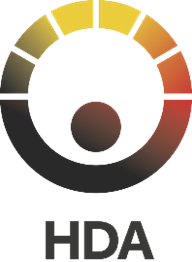A brief overview of some terms relating to data and health
Browse the glossary using this index
Special | A | B | C | D | E | F | G | H | I | J | K | L | M | N | O | P | Q | R | S | T | U | V | W | X | Y | Z | ALL
O |
|---|
Open dataOpen data describes any data that can be freely accessed, (re)used and shared by anyone without restrictions. It aims to make scientific knowledge openly available and accessible to everyone. Open source refers to any programme whose source code is made available for use or modification as users or other developers see fit. Open source software is computer software that is developed as an open public collaboration and made freely available to the public. | |
Opt-inOpt-in means that you are giving your permission or agreeing to participate in something. Imagine you receive an invitation to join a club or a newsletter. If you decide to join, you are "opting in." It’s like saying, "Yes, I want to be part of this." | |
Opt-outThe EHDS imposes Member States to develop an opt-out possibility for secondary use of health data. Opt-out means choosing not to participate in something or saying "no" to a service, activity, or use of your data. For example, if a company sends you promotional emails, you can opt-out to stop receiving them. In health care, it refers to the ability to decline or stop certain actions, like having your data used for specific purposes. GDPR and EHDS legislation give people an easy way to opt-out, but there is a risk to it. For example, if a company sends you promotional emails, you can opt-out to stop receiving them. If fewer people share their data, researchers might not have enough information to study diseases, develop treatments, and improve healthcare practices in general. Moreover, if certain groups of people opt out (e.g., specific demographics or regions), the data may become biased. This can lead to medical findings that only apply to a narrow population and exclude underrepresented groups. Without enough data, it becomes harder for public health organizations to track disease outbreaks and to respond to public health crises effectively. People who opt out might miss benefits, such as early disease detection or being part of cutting-edge clinical trials. Someone's health condition might go unnoticed if their data isn’t included in population-wide screenings or analyses. While protecting privacy is critical, finding a balance between individual rights and collective benefits is essential for advancing healthcare and saving lives. | |
Outcomes dataOutcomes data refers to information that measures the results or effects of specific actions, interventions, or processes. It’s used to understand whether goals were achieved and to evaluate the effectiveness of programs, treatments, or decisions. Outcomes data answers the question: "What happened as a result?" It shows the impact of what was done, helping people or organizations decide what’s working and what needs improvement. | |
